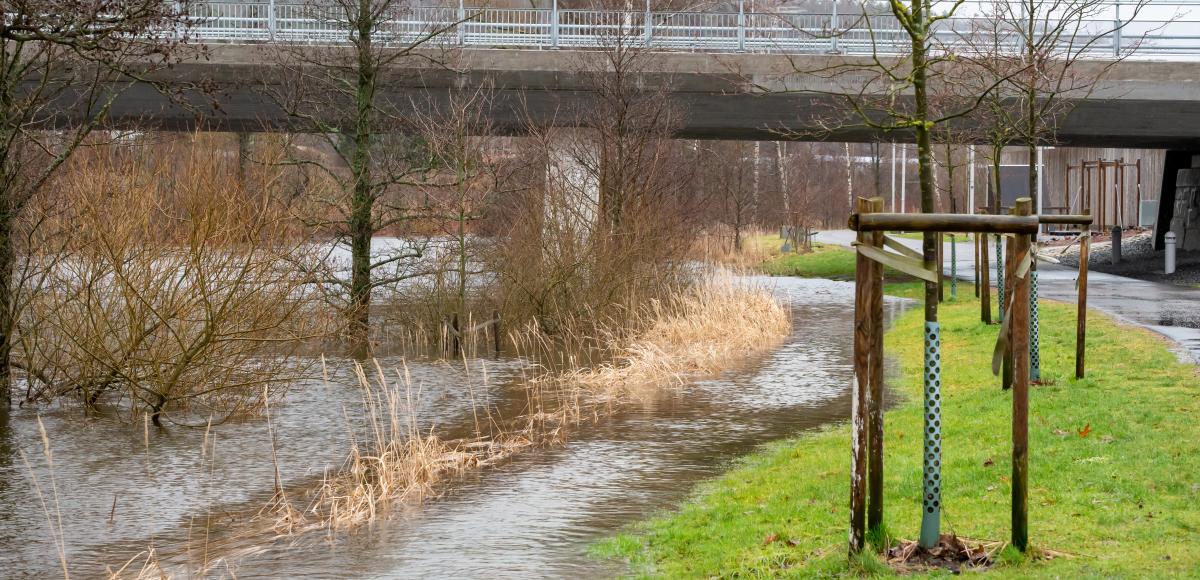
Stormwater runoff study in Örnsköldsvik, Sweden
The urbanisation and densification of our cities has led to a fragmentation and overall decrease in green areas and an increase in hard impermeable surfaces, leading to an increase in runoff and subsequent risk of flooding. At the same time, runoff contains more contaminants such as metals, sediment and nutrients and usually reaches waterways and seas without any treatment whatsoever. Green infrastructure can be used to protect the environment by delaying and treating stormwater runoff.
Like many Swedish municipalities, Örnsköldsvik is building and exploiting more land to meet the needs of a continuously growing population. Changes in human activity mean that previously unexploited land is claimed, resulting in more impermeable surfaces and increased stormwater runoff containing altered levels and types of contaminants. It is therefore necessary to study the effects of planned operations on stormwater runoff. AFRY has prepared a stormwater runoff study to clarify the measures that need to be taken to manage stormwater runoff from these new activities. Focus is to maintain the original water balance within the area despite any new exploitation of the land. The study proposes solutions for stormwater management with the area, as well as any purification and/or delaying measures for runoff.
AFRY has prepared a number of stormwater runoff studies on behalf of Örnsköldsvik Municipality. We always begin by looking at the specific conditions affecting the area in question, such as soil types and vegetation, and how these will be affected by exploitation. Geotechnical conditions decide whether it will be possible to infiltrate stormwater within the area. We also carry out calculations and analyses of stormwater flows and contamination, both prior to and after exploitation. In consultation with the municipality we propose optimal solutions based on a site-specific perspective and with consideration for local integrated stormwater management.

